Understanding addition Normal Addition & Subtraction Worksheets for Ages 4-6
6 filtered results
-
From - To
Discover the perfect way to introduce basic math skills to your little ones with our "Understanding Addition: Normal Addition & Subtraction Worksheets for Ages 4-6." These engaging worksheets are designed to help young learners develop a strong foundation in addition and subtraction. Through fun and interactive activities, children will learn to recognize numbers, understand counting, and solve simple arithmetic problems. These printables are perfect for reinforcing classroom learning or for extra practice at home, making math both enjoyable and educational for your child. Set the stage for math success with our expertly crafted worksheets!
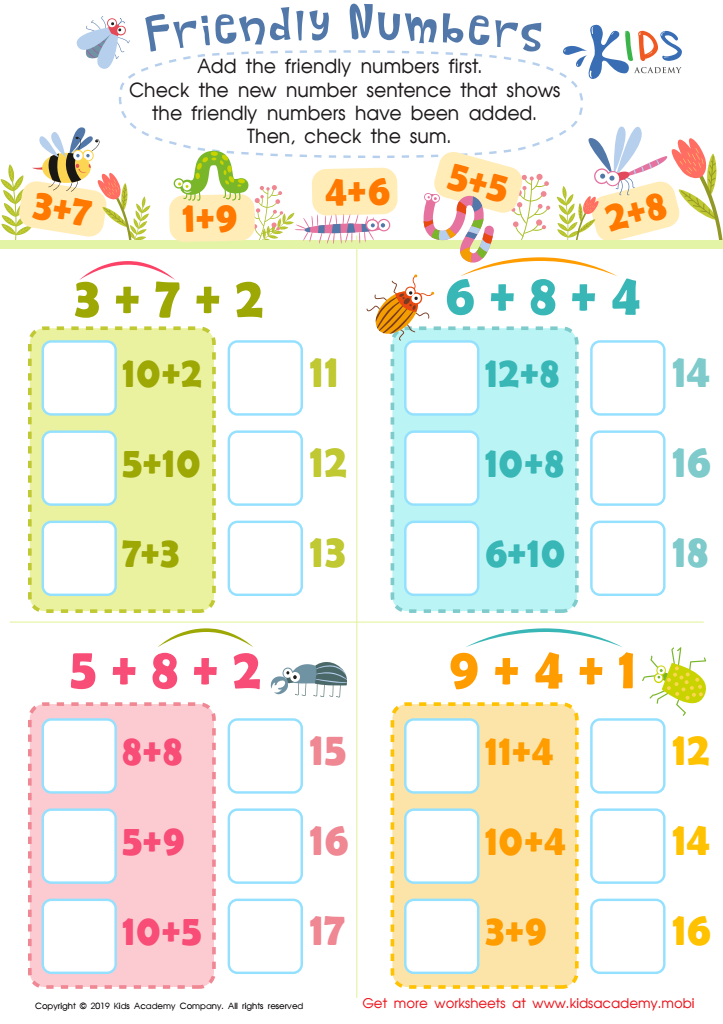

Friendly Numbers Worksheet
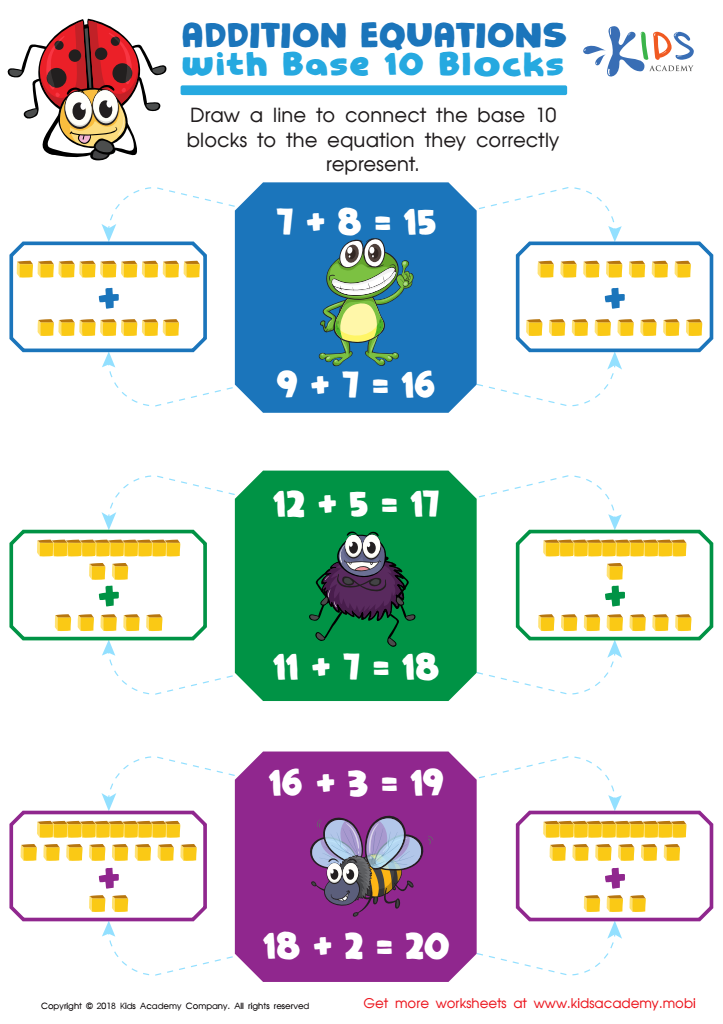

Addition Equations With Base 10 Blocks Worksheet
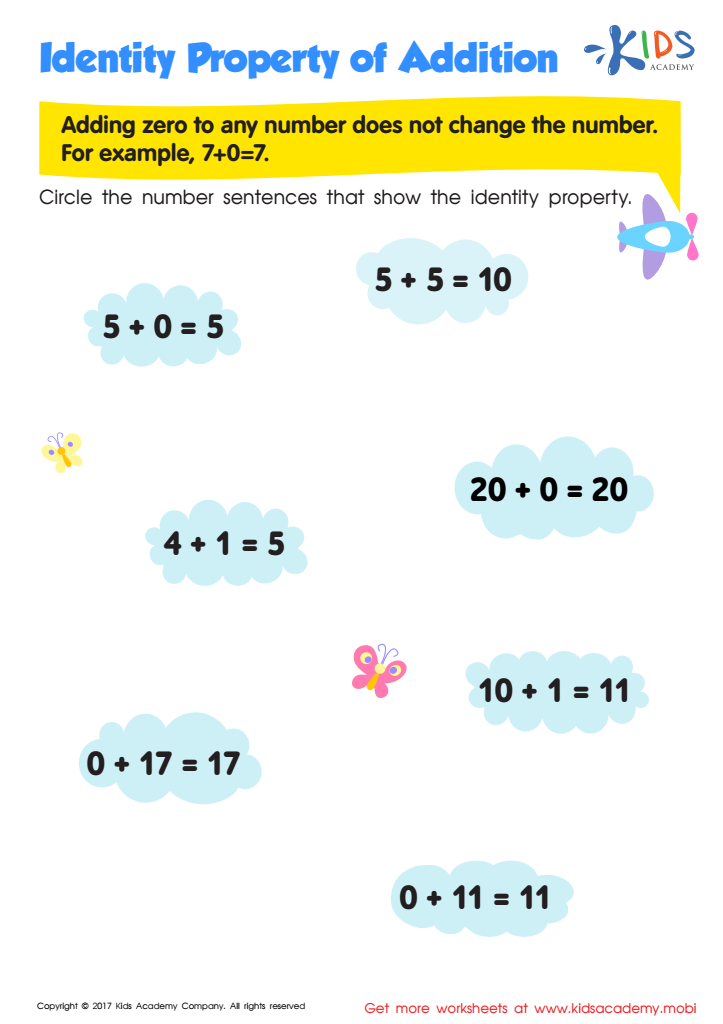

Identity Property of Addition Worksheet
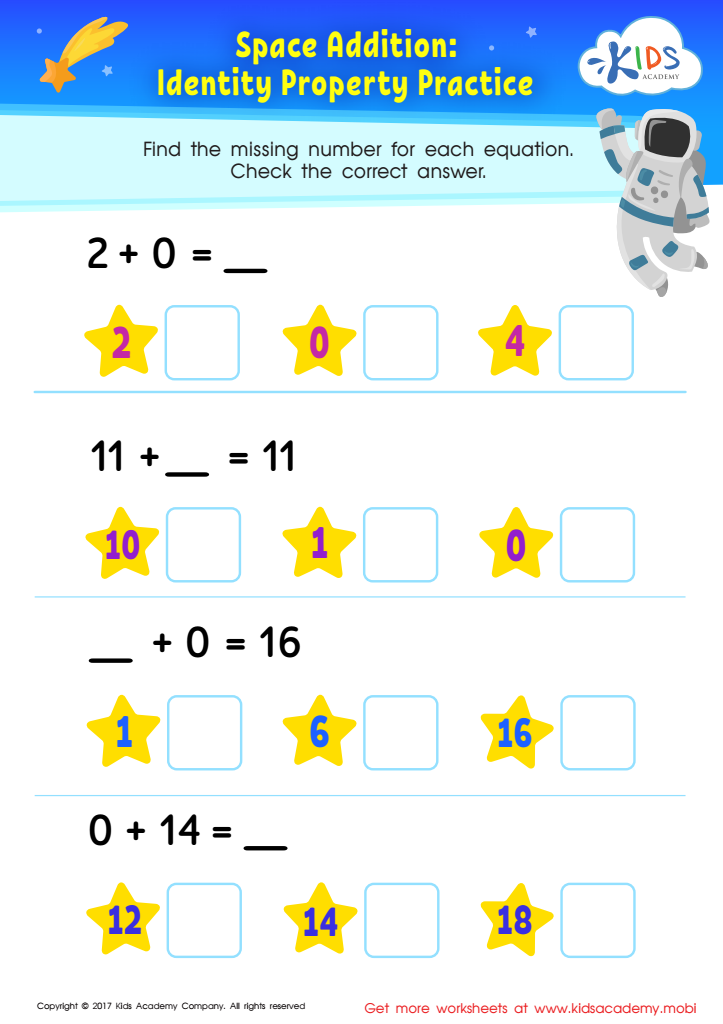

Space Addition: Identity Property Practice Worksheet
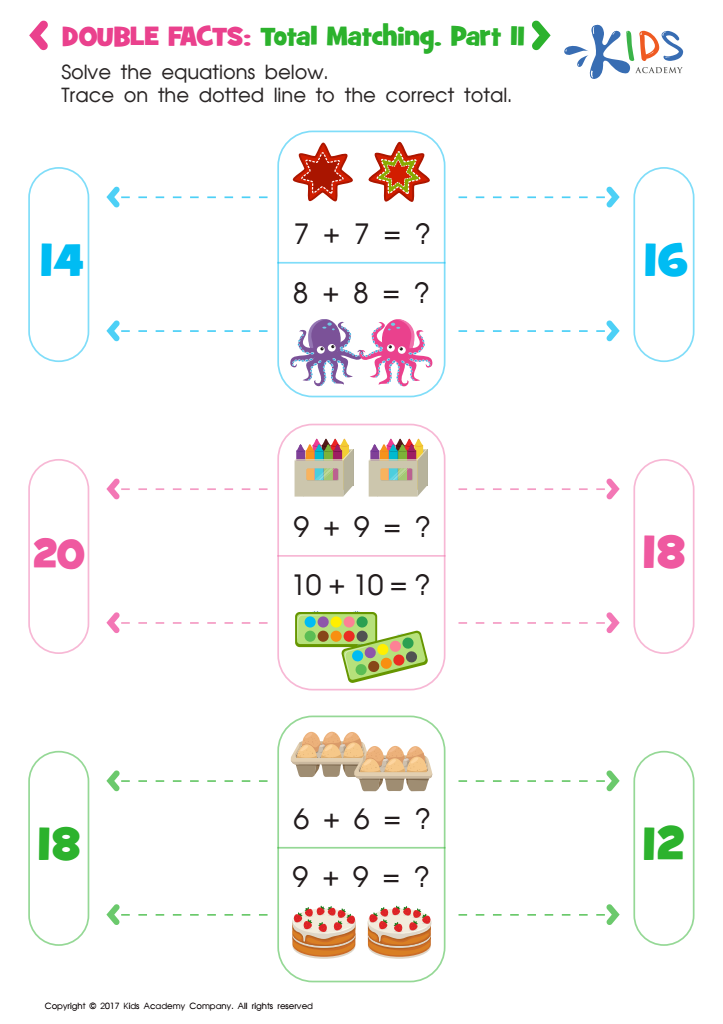

Double Facts: Total Matching 2 Worksheet
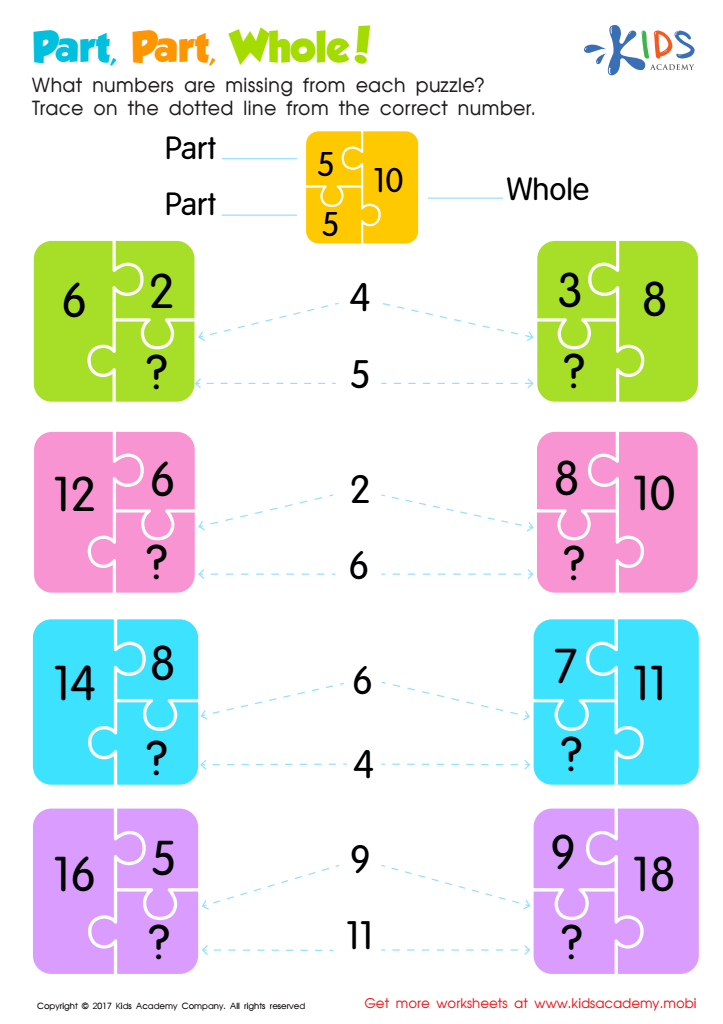

Part, Part, Whole Worksheet
Understanding addition and subtraction for children aged 4-6 is foundational, impacting their cognitive development and future academic success. At this age, children's brains are highly adaptable and capable of absorbing new information quickly. Parents and teachers play a crucial role in creating a positive learning environment that fosters early math skills.
-
Cognitive Development: Early exposure to these concepts helps develop critical thinking, problem-solving abilities, and reasoning. Addition and subtraction introduce children to patterns, sequencing, and logical thinking, laying the groundwork for more advanced math.
-
Life Skills: Basic math skills are essential for daily activities such as counting objects, understanding time, and handling money. Developing proficiency early gives children confidence and independence in their day-to-day lives.
-
Academic Readiness: A strong grasp of addition and subtraction by age 6 sets the stage for more complex mathematical concepts encountered in elementary school. This early mastery can make future learning smoother and more enjoyable, reducing math anxiety.
-
Engagement: Teaching these skills through interactive, fun activities engages children’s natural curiosity and enthusiasm for learning. It promotes a love for education early on, encouraging lifelong learning.
Therefore, parents and teachers should prioritize early math education to bolster children's cognitive abilities and pave the way for their academic journey.
 Assign to My Students
Assign to My Students

















